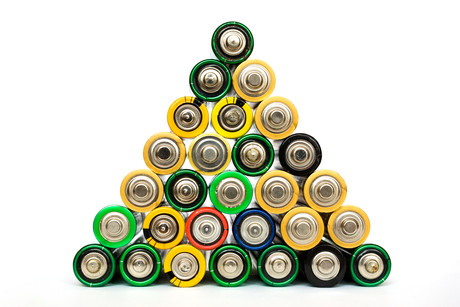Building a nation of battery recyclers

Australia is the worst of any developed country for battery recycling at 5–10%, compared with Belgium at 75%, identified a panel conducted by Lighting Council Australia during National Recycling Week. The panel discussed minimising e-waste and the barriers to recycling for Australians, which include a lack of awareness and the fact it can be financially disadvantageous for electrical contractors.
In 2015, Lighting Council Australia, in partnership with the Queensland Department of Environment and Heritage, established the EXITCYCLE battery recycling initiative. The ongoing aim of the scheme is to increase the recycling rate of emergency and exit lighting batteries, and prevent up to 90 tonnes of toxic metal ending up in landfill annually. Signatories to EXITCYCLE, which include government sector organisations, e-waste collectors and private businesses such as Evolt, commit to recycle at least 95% of their end-of-life emergency and exit lighting batteries at their nominated sites.
However, there is a significant amount of work that needs to be done for the purpose of bringing the recycling of batteries to an acceptable level in Australia. All stakeholders within the industry need to come together, including the government, electrical wholesalers, electrical contractors and manufacturers, to develop a scheme that is practical and simple.
While most of the emergency lighting products available in today’s market include environmentally friendly batteries, this was not the case 20 or 30 years ago, and the luminaires installed then are coming up for replacement. There are potentially hundreds of thousands of these products installed, which is why there is an urgency to have a workable scheme now.
While there would be a handful of electrical contractors who recycle batteries correctly through e-waste management providers such as CMA Ecocycle and MRI e-cycle solutions, the majority of the luminaires end up in landfill, including the batteries.
According to EXITCYCLE, about 90% of batteries used in emergency and exit lighting are nickel cadmium (Ni-Cd) and an estimated five million of these batteries are disposed of in landfill each year. Cadmium is a toxic heavy metal that can have negative impacts on the human body and natural environment if left to contaminate landfill. The liners in landfill currently preventing the leaching of these toxic metals into soils and seas will disintegrate long before the toxic batteries themselves, which puts into perspective the need to prioritise battery recycling.
Manufacturers need to commit to using only environmentally friendly batteries, which Evolt has done since the business began in 2005, and the EXITCYCLE scheme should be nationalised. The Queensland pilot program was the pioneer; however, it needs to be expanded. In the same way the recycling of cans and bottles, which started in South Australia, has been adopted nationally, the EXITCYCLE program needs to be introduced to all states and territories.
Evolt proposes an increase in the number of collection points, potentially using electrical wholesalers as logical places for old fittings to be returned when electrical contractors are there purchasing new products.
While there are recycling companies in Australia that provide specially designed containers for recycling, there is currently a cost that needs to be covered for transport back to the recycling point. The industry needs to consider who is responsible for this cost.
The difficulty of recycling some of these products varies depending on the battery’s technology. For example, lead acid and Ni-Cd batteries collected by e-waste recyclers such as MRI are shipped to recycling centres in Korea. These shipments can incur export and government tariffs, which doesn’t encourage the industry to utilise recycling companies in countries like Korea.
The next step is building awareness of the impact of not disposing of these environmentally damaging batteries correctly. We need to ensure that not only are the signatories of the scheme working on educating customers and raising awareness, but new members need to be recruited to help raise the EXITCYCLE public profile. This includes manufacturers, government and electrical wholesalers, who can talk to contractors and encourage changing their approach to recycling.
With the recycling of food waste, packaging and mobile phones on the rise, it’s now time to address the critical issue of e-waste.
Why do a fifth of solar panels degrade rapidly?
An Australian study has explored a critical problem for solar energy: the phenomenon of a...
Tackling energy insecurity in remote communities
Researchers from Flinders and Macquarie Universities have presented the benefits of community-led...
Paper-thin LEDs that are kinder to the eye
A new, experimental LED is nearly as thin as paper and emits a warm, sun-like glow.




